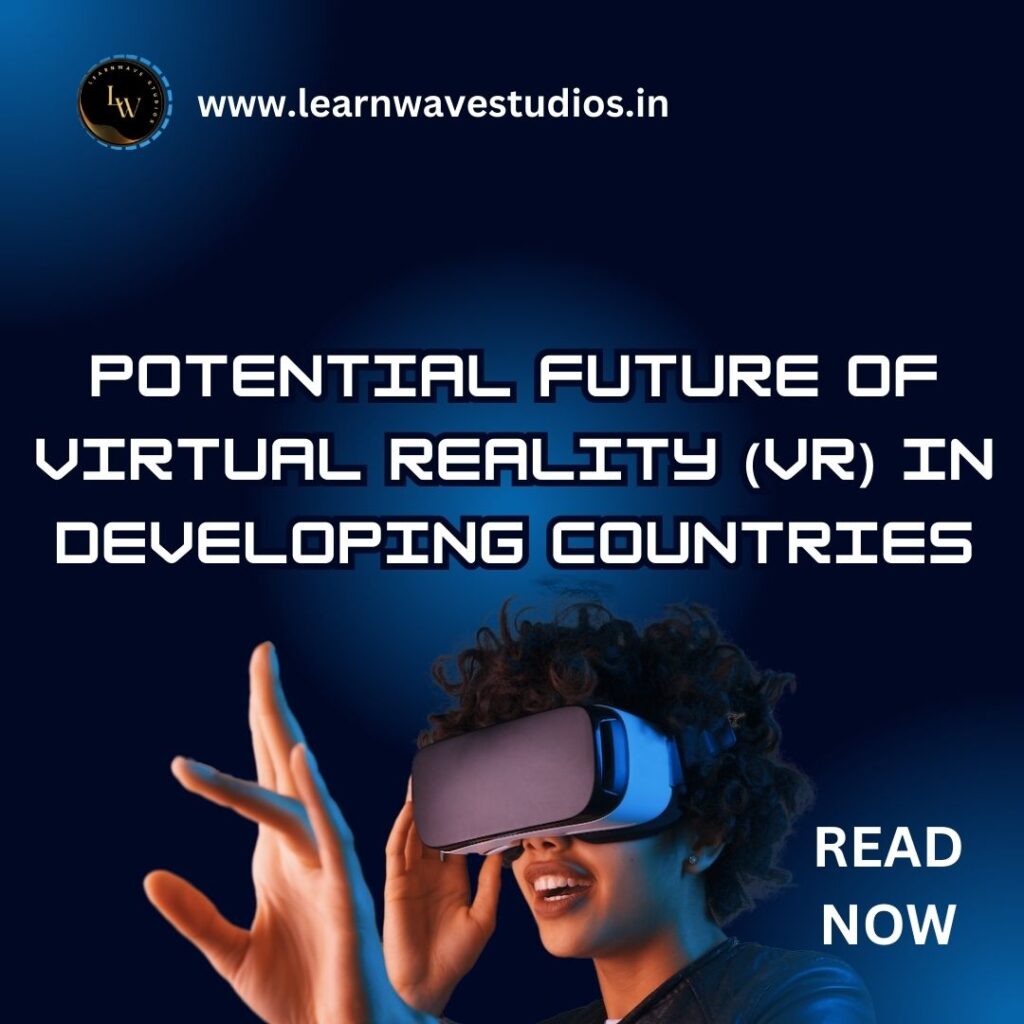potential future of virtual reality (VR) in developing countries
As the world continues to embrace technological advancements, the potential future of virtual reality (VR) in developing countries is a topic of immense interest and significance. The transformative impact of VR extends beyond entertainment and gaming, heralding new opportunities in education, training, healthcare, and various industries. This blog post aims to explore the promising prospects, challenges, and potential impact of virtual reality in developing nations.

Education and Training: Virtual reality (VR) presents a revolutionary approach to education and training in developing countries. Through immersive VR experiences, students can transcend traditional learning barriers, gaining access to interactive simulations, virtual field trips, and hands-on experiences that were previously inaccessible. In regions with limited educational resources, VR has the potential to bridge the gap, offering students a compelling means to engage with complex subjects, enhancing their understanding and retention of knowledge.
Healthcare and Wellness: In developing nations, access to quality healthcare is often a challenge. Virtual reality (VR) technologies offer the potential to revolutionize medical training, telemedicine, and therapy sessions. By simulating realistic medical scenarios and enabling remote consultations, VR can expand the reach of healthcare services, particularly in underserved areas. With the use of VR, medical professionals in remote locations can receive specialized training and guidance, ultimately improving patient care and outcomes.
Economic and Workforce Development: The integration of VR in workforce training and skill development programs has the potential to empower individuals in developing countries, enhancing their employability and fostering entrepreneurship. VR-based training can provide practical experience in various vocations, from technical skills to creative arts, contributing to a more skilled and adaptable workforce. Furthermore, the adoption of VR technologies in remote work arrangements can facilitate global collaboration, opening opportunities for individuals in developing nations to participate in international projects and employment opportunities.
Challenges and Considerations: Despite the promises of VR, challenges such as cost, infrastructure limitations, and technical expertise remain significant barriers in deploying VR solutions in developing countries. Addressing these challenges necessitates collaborative efforts from governments, private sectors, and international organizations to invest in VR infrastructure, develop localized content, and facilitate skill development to harness the full potential of virtual reality technologies.
The Future Outlook: The future of virtual reality in developing countries holds immense promise, offering transformative solutions to address critical societal needs. As technology continues to advance, VR has the potential to democratize access to quality education, healthcare, and economic opportunities, fostering inclusive development and empowerment. Bridging the digital divide and fostering innovation in VR technologies can drive positive change, empowering individuals and communities in developing nations to realize their full potential.
In conclusion, the potential future of virtual reality (VR) in developing countries is rooted in its capacity to drive positive, inclusive change across various domains. Embracing VR technologies presents an opportunity to foster educational advancement, improve healthcare accessibility, and promote economic empowerment, ultimately contributing to the holistic development of developing nations.
Virtual reality (VR) in developing countries, VR impact on education, VR healthcare applications, VR workforce development, challenges of VR adoption, future of VR technology, inclusive technology solutions.
This blog post aims to provide a unique and original perspective on the potential future of virtual reality in developing countries, offering insights that are both informative and engaging for readers seeking a deep understanding of this emerging technological frontier.

